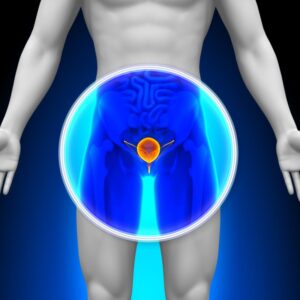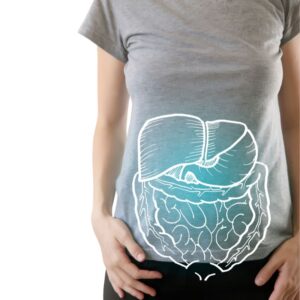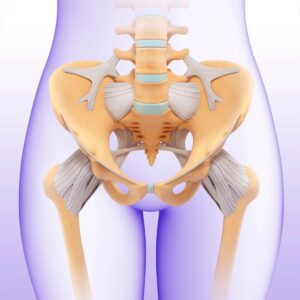Nurturing Bladder Health: Hydrate, Strengthen and Prevent UTIs!
 Bladder health is often overlooked until it becomes a problem, but maintaining a healthy bladder is essential for overall well-being. One of the key factors in bladder health is hydration, as well as preventing urinary tract infections (UTIs), which can be painful and disruptive.
Bladder health is often overlooked until it becomes a problem, but maintaining a healthy bladder is essential for overall well-being. One of the key factors in bladder health is hydration, as well as preventing urinary tract infections (UTIs), which can be painful and disruptive.
Let’s explore the importance of hydration for bladder health and effective strategies for preventing UTIs
Hydration and Bladder Health
Proper hydration is crucial for maintaining optimal bladder health. When you’re adequately hydrated, your urine is diluted, which helps to prevent the buildup of bacteria and reduces the risk of urinary tract infections. Aim to drink at least 8-10 glasses of water per day, or more if you’re physically active or live in a hot climate.
I n addition to water, you can also increase your fluid intake through herbal teas, fresh fruits, and vegetables with high water content. Avoid excessive consumption of caffeinated and alcoholic beverages, as they can irritate the bladder and increase the frequency of urination.
n addition to water, you can also increase your fluid intake through herbal teas, fresh fruits, and vegetables with high water content. Avoid excessive consumption of caffeinated and alcoholic beverages, as they can irritate the bladder and increase the frequency of urination.
Pelvic Floor Exercises (Kegels)
Pelvic floor exercises, commonly known as Kegels, are designed to strengthen the muscles that support the bladder and control urine flow. To perform Kegels, tighten your pelvic floor muscles (the muscles you use to stop the flow of urine) and hold for a few seconds before releasing. Aim for three sets of 10 repetitions per day, gradually increasing the duration of each contraction as your muscles become stronger.
Maintain a Healthy Weight
Excess weight can put added pressure on the bladder and pelvic floor muscles, increasing the risk of urinary incontinence. By maintaining a healthy weight through a balanced diet and regular exercise, you can reduce strain on the bladder and improve bladder function. Eating a balanced diet rich in fruits, vegetables, and whole grains can help support overall immune function, making it easier for your body to fight off infections, including UTIs.
Stay Hydrated
While it may seem counterintuitive, staying hydrated is essential for bladder health. Drinking enough water helps to flush out toxins and bacteria from the urinary tract, reducing the risk of urinary tract infections and supporting overall bladder function. Aim to drink at least 8-10 glasses of water per day, or more if you’re physically active or live in a hot climate.
Avoid Bladder Irritants
Certain foods and beverages can irritate the bladder and exacerbate bladder-related issues. Limit or avoid consuming caffeine, alcohol, spicy foods, artificial sweeteners, and acidic foods like citrus fruits and tomatoes, as they can irritate the bladder and increase urinary frequency.
 Practice Timed Voiding
Practice Timed Voiding
Timed voiding involves scheduling regular bathroom breaks throughout the day, regardless of whether you feel the urge to urinate. By emptying your bladder on a consistent schedule, you can help train your bladder to hold urine for longer periods and reduce the frequency of urinary urgency.
Remember to be patient and consistent with your efforts, as bladder strengthening takes time and dedication.
UTI Prevention Strategies
Urinary tract infections are caused by bacteria entering the urinary tract and multiplying, leading to inflammation and discomfort. While anyone can develop a UTI, certain factors, such as gender, age, and underlying health conditions, can increase the risk. Here are some effective strategies for preventing UTIs:
Stay Hydrated: As mentioned earlier, adequate hydration helps to flush out bacteria from the urinary tract, reducing the risk of infection. Make it a habit to drink plenty of water throughout the day.
Practice Good Hygiene: Proper hygiene is essential for preventing UTIs. Always wipe from front to back after using the bathroom to prevent bacteria from entering the urethra. Additionally, be sure to urinate before and after sexual activity to flush out any bacteria that may have entered the urinary tract.
Wear Breathable Clothing: Tight-fitting clothing, especially underwear made from synthetic materials, can create a warm and moist environment that’s conducive to bacterial growth. Opt for breathable cotton underwear and avoid wearing tight-fitting pants or leggings for extended periods.
 Avoid Holding Urine: Holding urine for prolonged periods can increase the risk of UTIs by allowing bacteria to multiply in the bladder. Aim to urinate regularly, and don’t ignore the urge to go when you feel the need.
Avoid Holding Urine: Holding urine for prolonged periods can increase the risk of UTIs by allowing bacteria to multiply in the bladder. Aim to urinate regularly, and don’t ignore the urge to go when you feel the need.
Consider Probiotics: Probiotics are beneficial bacteria that can help maintain a healthy balance of microorganisms in the urinary tract. Some studies suggest that certain probiotic strains may reduce the risk of recurrent UTIs, so consider incorporating probiotic-rich foods like yogurt or taking a supplement. Check out Fullscript here to see the brands we recommend and to get discounts!
Proactive steps
Taking proactive steps to support bladder health is essential for overall well-being and quality of life. By staying hydrated, practicing good hygiene, and following UTI prevention strategies, you can reduce the risk of urinary tract infections and maintain optimal bladder function. If you experience symptoms of a UTI, such as pain or burning during urination, frequent urination, or cloudy urine, CALL US for proper diagnosis and treatment. Remember, a healthy bladder is a happy bladder!

Dr. William Davis, MD — An internal medicine physician, Dr. William Davis uses a comprehensive approach to deliver highly personalized, effective, and compassion health care. Learn more about Dr. Davis.
Find out how PPMA can help you reach your health goals!
Learn about the link between foods and bladder symptoms from the Mayo Clinic.



 Practice Timed Voiding
Practice Timed Voiding